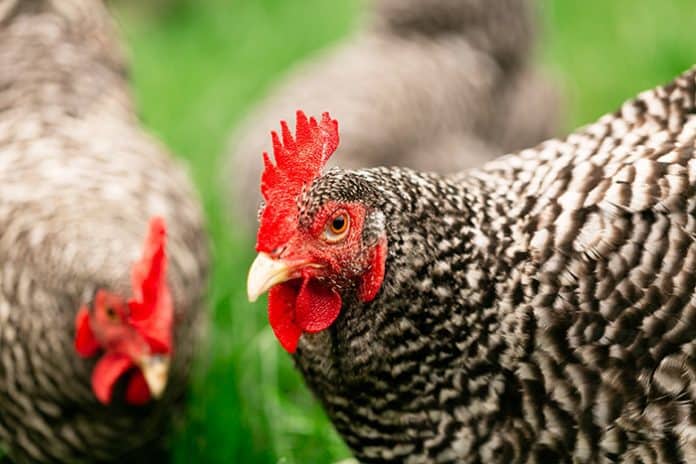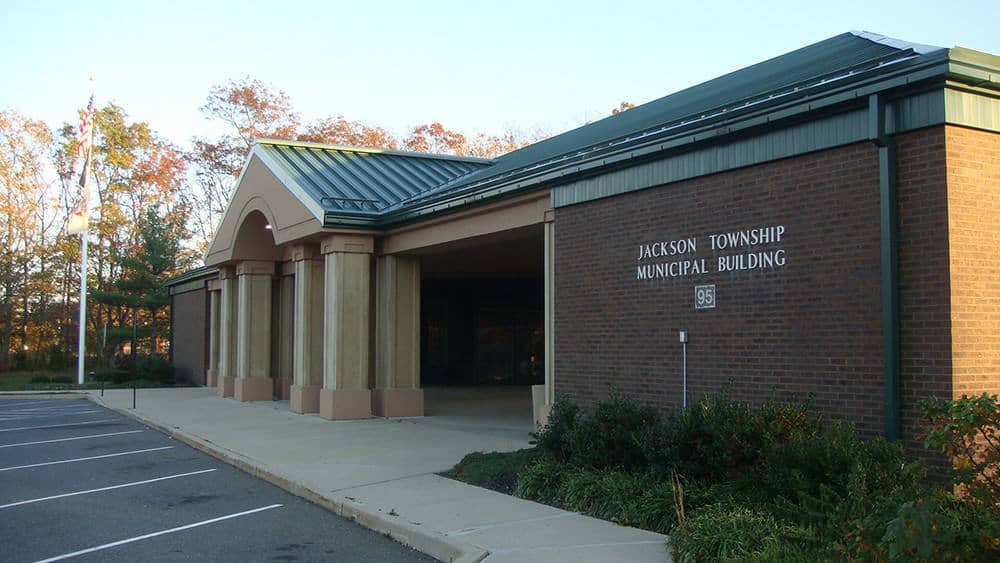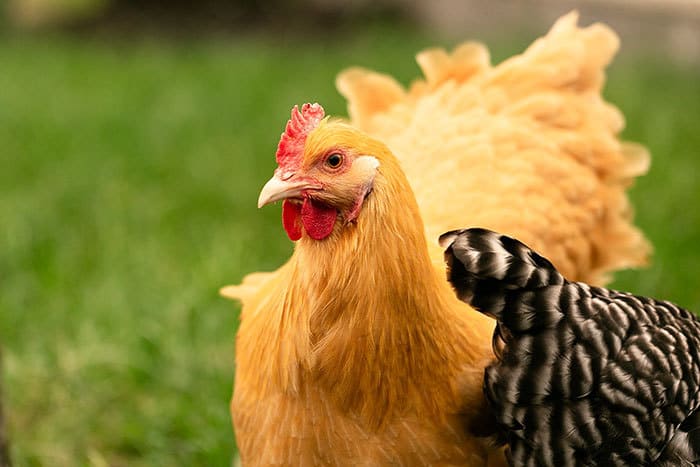
JACKSON – Township officials passed an ordinance concerning the ethical and humane treatment of animals during its latest council meeting but the subject that dominated the session was what the township could do in cases of religious ritual animal sacrifices.
Known as the “Humane and Ethical Animal Rules and Treatment (HEART) Ordinance” the Council approved the measure in a 4-1 vote during a recent meeting. Council President Robert Nixon cast the dissenting vote. While commending the authors of the ordinance he said that such regulations were already covered under state and federal law.
During the public hearing, concerns were raised regarding the exemption of animal sacrifice in connection to religious rituals.
The council voted to introduce the ordinance last month. This was after complaints were filed in neighboring Lakewood during the Orthodox Jewish tradition of Kaporos during Yom Kippur. That ritual involves the sacrificing of chickens. Jackson’s ordinance allows this practice but requires the practice to stay within religious institutions and private property.
Councilman Alex Sauickie who co-sponsored the ordinance with Council Vice President Barry Calogero, said the ordinance was drafted to prevent abuse of both family member animals at home and those who live in the wild “in this unique environment which is Jackson Township.”
Sauickie said last month that “we believe enforcement against these acts of cruelty within surrounding towns was inadequate because they had nothing on the books to deal with them at the municipal level and thus, this ordinance gives our local police officers and code enforcement department the power to enforce these protections and bring those that break them to justice.”

The ordinance states “animals are considered to be any living nonhuman mammal, bird, reptile, or amphibian including, but not limited to, bats, companion animals, companion birds, domestic animals, exotic or wild animals, livestock, pigeons, poultry, woodchucks, rabbits and skunks. The ordinance does not include insects and arachnids.”
Cruelty is defined in the ordinance as “any act or inaction that causes, is known to cause or is calculated to cause physical or psychological pain, injury, damage or harm to an animal. Those cited for cruelty can include the owner of the animal and personal observation of cruelty by a Township official or police officer is not required.”
Resident Bonnie Barrington spoke about the Kaporos ritual. “The chickens are slung over their heads and left half dead. Is this ordinance aimed at allowing that to happen?”
Sauickie responded that “this ordinance does not create or support that. It acknowledges that there is a federal mandate that allows this for religious purposes only.” He added that such religious rituals, while exempt due to federal law, still requires specific procedures to be followed. “It has to be done in the privacy of a home or at a religious institution. It does not allow for animal abuse.”
“The treatment of the livestock prior to the ritual is something I think should be addressed. The religious aspect of this can’t be touched but we have state laws about animal abuse and I am questioning if that will come into play here?” Barrington said.
“These chickens are specifically being trucked in and are being bred for this purpose,” Barrington said, adding that she had viewed a video showing the care of the livestock and “it showed the livestock had not been fed, given water or shelter. Is the township prepared to call in a code enforcement officer to deal with that if there are citizen complaints? Are we prepared to monitor the care of the livestock if this ritual occurs?”
Sauickie clarified that “this is an animal abuse ordinance. It is to prevent animal abuse of any kind. It is not targeting what can and cannot be done correctly according to the federal mandate of religious exclusion. The design of the ordinance is very much in line with your concerns. One of the reasons this ordinance was written is because we were not seeing anything being done on the municipal level. As to whether we have the resources, these are codes like any other codes on our books and code enforcement officers would be expected to take action. We will not be monitoring specific religious rituals. That is not the intent of this ordinance.”
“If we scrapped this ordinance the federal law would still be in place and everything you talked about would still be of concern,” Calogero told Barrington.
“This ordinance is needed and should be approved by the council. I don’t agree with the exemption of religious slaughter however the Supreme Court has settled that and we have no choice,” resident Sheldon Hofstein said.
Hofstein said of the Kaporos ritual, “even though I grew up in an observant family I have never heard of this practice. The remains of the chicken are supposed to be donated to the poor but this isn’t always the case as we’ve seen pictures of the carcass left in the streets. In my opinion, the Rabbi could perform an alternate ritual substituting a bag of money for the chicken and then donating it to charity.”
Resident Richard Egan said he was also in support of the ordinance. “It doesn’t give them blanket immunity. We have to live with this (animal sacrifice exemption) and regulate it the best we can.”
Donna Hubbard said she witnessed the ritual first hand in Lakewood. “I still can’t get it out of my head. It is the most barbaric thing I’ve ever seen.” Hubbard also felt the ritual should be monitored by township code enforcement.
Township Attorney Jean Cipriani responded to Hubbard’s question of whether the ritual was confined to being inside a home or religious structure that it could be held outside so long as it was fenced off from view of neighbors.
“What will the township do about the clean up afterward?” Hubbard asked.
Saucikie said the township has received no reports of the ritual taking place in Jackson. “My guess would be that the township would clean it up but would fine those who committed the crime.”
“There is a mass killing of chickens in thousands,” resident Jeff Nemeth said. “How many times of year does this happen?”

Hofstein responded, “once a year before the day of atonement.”
Council President Robert Nixon called for residents not to guess at the specifics of the religious practices and to stick to the subject of what the ordinance could do.
“I just wanted to know the frequency of when this does happen,” Nemeth said.
“I feel the ritual is totally cruel. I understand what you are saying about the federal law. I just don’t understand how in 2019 how these kinds of things can happen. I don’t see anyone from this community representing them to get any input. This is a barbaric ritual,” resident Polly Sheehan said.
Hubbard added “before they put the chicken over their head, they pull back the wings and break the wings. Is that not animal abuse right there?”
Sauickie answered saying that under the federal mandate, “that is considered part of the ritual and allowed.”
The term “ritual slaughter” means slaughter in accordance with established township code.
“Can we figure out where a ritual begins and where it ends? At what point do we start decapitating puppies?” resident Jennifer Cusanelli asked. “I understand there is nothing this ordinance can do about this ritual.”
Cipriani said that any complaints raised connected to any religious ritual that show a violation of the ordinance would be addressed and that to speculate on potential violations prior to any such reports would not be appropriate.
Those found guilty of violating any aspect of the ordinance face fines of up to $500 for each offense, imprisonment for not more than 30 days, or both, in the discretion of the court. Each offense shall be treated individually as relates to the number of animals impacted by the offense(s).





